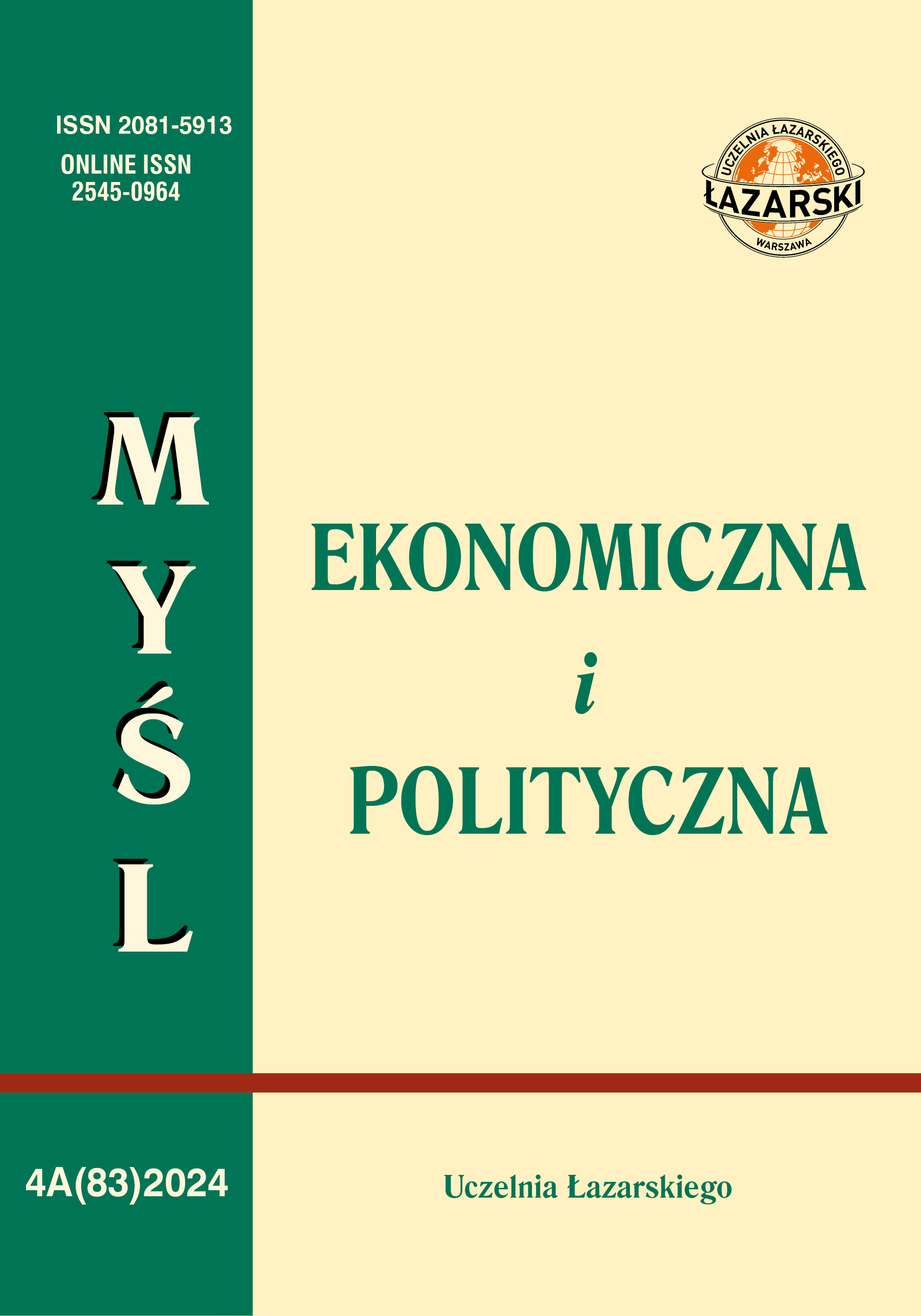Abstract
The main theoretical framework of this paper is the Prospect Theory by Daniel Kahneman and Amost Tversky (1979). According to its assumptions, decisions regarding economic resources depend on whether the effects of a given decision are viewed through the lens of gains or losses relative to a benchmark against which the decision‑maker compares possible end results. The study (N = 344) explored the impact of the presence of a rival, as an element of the situational decision‑making context, on the propensity to engage one’s own cognitive resources. The study was based on the discounting paradigm (assessing the subjective value of (1) a prize certain but deferred in time or (2) available immediately but available with a certain probability). The analysis showed an effect of the presence of a rival on the propensity to commit one’s own resources. This effect was moderated by both the gender of the decision‑maker and its interaction with the gender of the rival, as well as by the certainty of winning resulting from the context of the task - probability discounting vs. deferral discounting.
